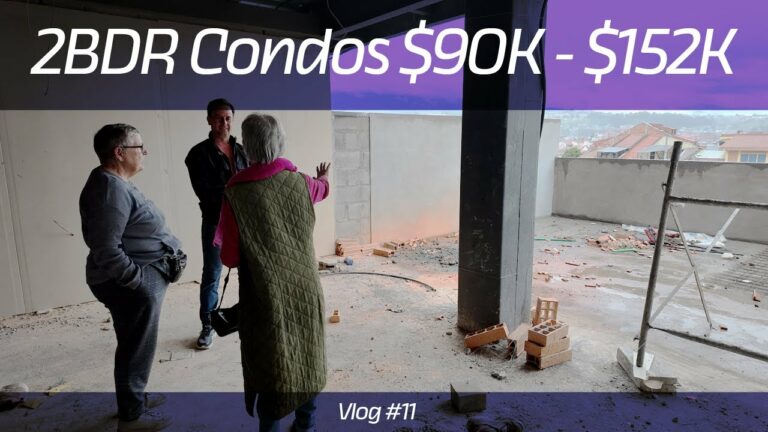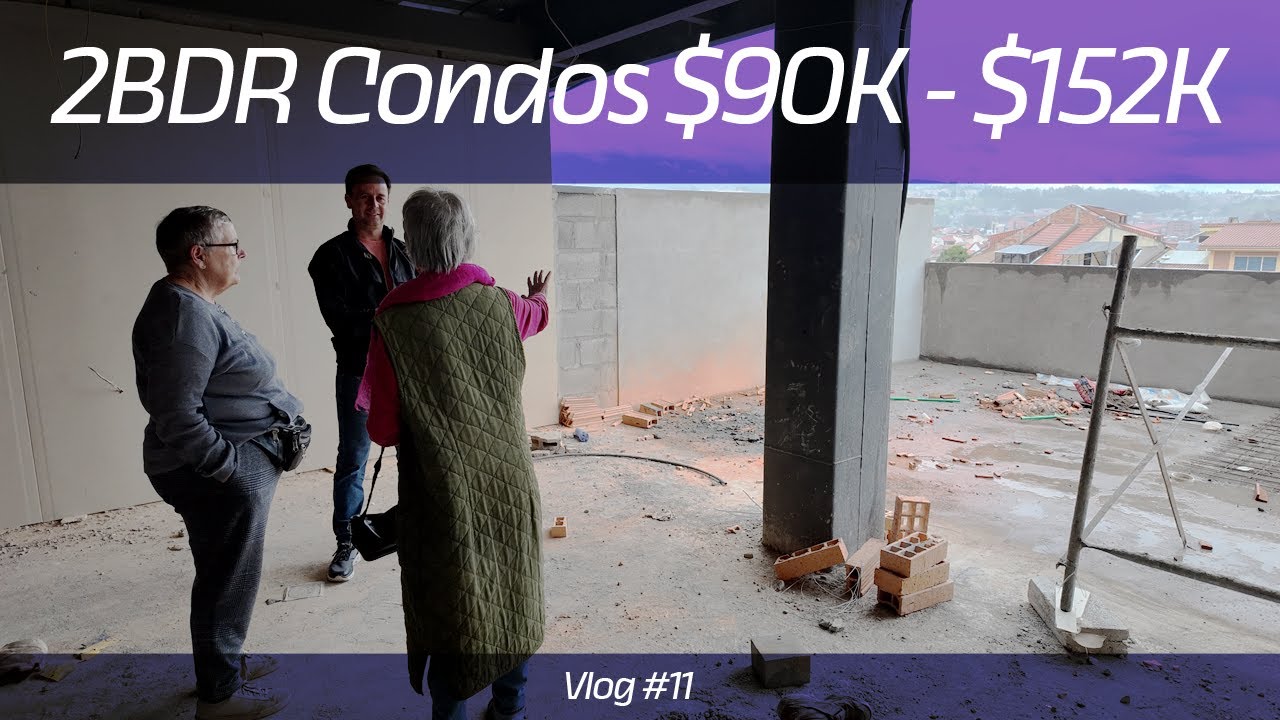One of the questions we get asked a LOT is “How can I sustain myself in Ecuador?” Obviously, this isn’t so important to the retired ex-pats that can rightfully enjoy the fruits of their labor in the form of regular social security or pension payments.
But, for the rest of us, making money whilst in Ecuador can be quite a challenge. This leads most to at least consider their options for working remotely from Ecuador.
What exactly are the challenges of working in Ecuador & why do remote options tend to stack up so well? We’re exploring this right now. Let’s go!
1. Good paying jobs are hard to find in Ecuador. Even for locals.

Michelle has worked in Ecuador’s tourism industry for most of her life. It’s one of the better-paying industries in Ecuador. But even so, salaries for the highest level workers generally max out at $3,000 – $4,000. These jobs also carry a lot of stress and pressure to perform – often without the support structures in place to allow staff to fully reach their potential.
But, most Ecuadorians don’t earn anywhere near that. The minimum wage (salario básico unificado) increased to $425 in 2022 . The average salary is difficult to pin down because data is difficult to come by, especially for the large informal sector that isn’t registered and generally averages less than $200 per month.
Perhaps the best way to look at wages in Ecuador is that more than 50% of the population earns less than $500. Can you survive on $500/month? Maybe, but I dare say you’ll be needing to make some serious sacrifices to your lifestyle.
So, how much can I expect to earn per month?
It’s possible to find jobs earning between $800 & $1,500 per month. But, these won’t be easy to come by and you’re kidding yourself if you think you’ll just waltz into a decent job just because you have a good resume & overseas education.
2. You don’t know anyone

This technically falls under the ‘local jobs are hard to find’ section above. But, I’m pulling it out as a separate point because it’s worthy of highlighting. Now, I know what you’re thinking, networking is important everywhere in the world. And, I would agree with you. But, Ecuador tends to take this to a whole new level with many jobs going to family members just because they are family.
And, this pops up time and time again, often in places where you wouldn’t expect it. For example, I remember having quite a laugh at our kid’s end-of-year school performance when they read out the names of the staff that were receiving awards for their efforts. Two family names completely dominated this list. Their hiring policy was very clearly favored towards family members.
As an expat, you don’t have these family ties in place, leaving you at a significant disadvantage when it comes to securing a well-paying job.
3. Easy visas for remote workers / digital nomads

Ecuador has some of the easiest and cheapest visas for remote workers and digital nomads. Residents from most countries can easily spend 180 days each year in Ecuador without needing to jump through many hoops (you’ll need to extend your visa – check out this deal).
Want more than 180 days in Ecuador? Then you’ll need to apply for temporary residency. Whilst the process certainly requires more effort and paperwork, most expats find they are eligible for one or more types of temporary residency visas (use this residency visa calculator to see the types of visas you may be eligible for).
And yes, Ecuador is planning on offering a digital nomad visa, but we’re still waiting on the details. I personally have mixed feelings about this proposed visa as the current temporary residency process works very well for nomads and I don’t want to see this tampered with.
So, you have ample options for working in Ecuador for 180 days every year (great for digital nomads) and many options for temporary residency (ideal for remote workers).
4. Timezone is perfect for US jobs

I’ll be honest, Ecuador’s timezone kinda sucks as an Australian. When working with Australian clients, it’s always a challenge to communicate as we only have a 2-3 hour window that is friendly enough for all parties to have meetings etc.
But, oh my gawd how awesome is the timezone when working with clients from the US. It’s perfect, perfect, perfect. Generally, I don’t have to make any adjustments to my lifestyle to take meetings etc.
It takes more than just a friendly timezone to secure a US job
One of the forced learnings from the COVID pandemic has been the relative ease for many jobs to be performed remotely. This has led to 70% of US companies looking to continue to employ a hybrid model of office/home based work post-pandemic.
But, this forced rethinking has also led to many employers also enforcing strict geographical limitations on where you can work, with many only allowing remote work from within the US.
That’s before you even get to the legal requirements of working for a US company. Not an issue for US citizens, but it can be a very steep hurdle for everyone else. Oh, and many US companies don’t want to hire an overseas contractor. That’s just their policy and good luck changing it.
Test this out for yourself. Go to the popular freelancing job site Upwork. When searching for a job you’ll find a very prominent toggle that allows you to select “US only” jobs. You’ll very quickly find out that many of the better opportunities on the site are only available to US applicants living in the US.
5. Doing business in Ecuador is tough

Other expats decide that starting their own business in Ecuador is the way to go. I’m just going to say that this is not for the faint-hearted and you will face many unexpected challenges.
“I imagined that doing business here was similar to that in the US. I could not have been more mistaken.”
Mike from Mike’s Meats
We’ve obviously gone down this path with YapaTree, but we also have the support network of Michelle’s Ecuadorian family & friends. This makes a very significant difference in us navigating a lot of the procedural issues that can easily drown small businesses if they aren’t addressed properly. This isn’t to say we’re home free, far from it as it seems there’s always another curveball waiting. But, at least we can lean on our Ecuadorian family to help navigate these waters.
We also have the vantage point of being able to work with lots of businesses in Cuenca through their participation in our Cuenca Discount Card program. I can tell you that there aren’t many expat-run businesses that are thriving, with many in a constant battle to keep their doors open.
If you’re considering this path, the best advice I can give you is to think very carefully about your target market. And, think harder if you’re going to try to exclusively target expats with your product/service. These are the businesses that have struggled the most during the pandemic (and before).
Even reaching the local market can be very tough for expats. Advertising and marketing are done quite differently here. Trust me on this one – I wish more Ecuadorian businesses saw the value in digital marketing, but they just don’t. The silver lining is I do see this (slowly) changing.
Case study – Mikes Meats
Perhaps you knew Mikes Meats in Cuenca. It was a deli-style meat shop located near Parque de la Madre. From the outside, it looked great; the shop was well run and Mike had a very steady following of expat customers. Unfortunately, this wasn’t enough to sustain Mike’s business. I’ve included his Facebook post below (with Mike’s permission) as I think he’s done a great job of summing up his key challenges.
“To be candid, my hubris got the better of me. I imagined that doing business here was similar to that in the US. I could not have been more mistaken.
- Our culture is different, at least in the manner in which we conduct business
- The language barrier presents quite a challenge.
- The laws in Ecuador are extremely different, especially as it relates to the labor laws.
- Our fine Ecuadorian competitors have significant advantages in that they are both vertically integrated, resulting in substantially lower costs and, consequently, are able to offer a similar products at substantially lower prices, with greater variety, than can we. Not to mention their expertise in the aforementioned points. “
Thank you Mike for your permission to use the above – I know this was a difficult period for you. Hopefully, others can learn from your experience. Read the full post.
Final words
For most expats, working remotely from Ecuador is going to provide a much higher effort vs reward ratio than trying to find a local job.
Especially for newer arrivals, we always recommend having foreign income lined up BEFORE making the move to Ecuador. I know this can be difficult for many that don’t have a background that easily translates to remote work.
But, you really don’t want to put yourself in a position where you’re in a constant financial struggle – especially in a country that is in its own constant fight to provide a safety net for its own citizens, never mind foreigners.
If you have specific questions about the types of opportunities available in Ecuador, you’re welcome to ask them in our Cuenca Yapas & Friends or Ecuador Digital Nomad Facebook groups.




















6 Responses
Most digital nomads bring their jobs with them. And for the most part they are not doing business with Ecuadorian companies, probably do not need to know Spanish, and make a lot more than what you reference above (think US salaries/earnings). And very importantly, they are working in a career most likely, it just so happens where they live does not matter. Big difference between pursuing a career and having a job. No question many careers include international travel and living. Probably there are professionals from other countries assigned here in Ecuador for various tasks. But just going somewhere and finding a job is risky business, Ecuador or anywhere and more than likely you are competing with a local for that job.
Singling out Ecuador, if you want to work in the EC economy, you better know Spanish, and as you say, be prepared for (relatively) low earnings. Yes there are remote English teaching jobs (if that is what you wish to do and they do not really pay that well). There other remote “jobs” of as well.
Some like Mike have started businesses. Some have endured, many have not and it is economically almost impossible to cater to a gringo only market base. Mike’s words above ring true.
Finally, working remotely has its own challenges, I know, been doing it 40 years and I still am. If you need to hang at the water cooler, and have office gossip, forget it. You must be very disciplined and frankly motivated.
What if I’m a freelancer? Is it tough getting a visa for that?
Generally no Pablo. Either the Professional Visa (if you have a uni degree) or the Rentista (if you have guaranteed income) might work. Depends on your circumstances. Feel free to contact us if you want to talk through your specifics.
Hey Jason,
I got a little lost in the article’s structure when you got to #5. Maybe I’m wrong but starting an Ecuadorian business doesn’t seem to be remote work. To me, remote work is income generation outside of Ecuador e.g., the digital nomad paradigm.
As I consider remote work for myself, I think it would be very informative to do an article on how Ecuador taxes remote workers, if at all, as I’ve defined them. And what criteria, if any, must be met prior to any tax liability, if any, such as the criteria for deeming one a “tax resident” or some such classification. Obviously, if an entrepreneur opens an Ecuadorian business, that person owes Ecuadorian taxes, including income taxes, among others, and payroll taxes on his/her employees. But if I’m a digital nomad sourcing/earning income from activities in the US, for example, with a requirement of zero interaction with Ecuadorians necessary to generate that foreign income, what obligations do I have to Ecuador in terms of taxes, such as for income, payroll, etc.? I think this is profoundly important.
Ecuador just created a visa to attract digital nomads. I have seen no information about how, if at all, Ecuadorian taxes apply to these nomads. This seems crazy to me, since a tax regime is so crucial to understanding business opportunity – a basic SWOT analysis.
Food for thought. An interview with a local CPA on this topic may be enlightening.
I love YapaTree and thanks for all your good work!
John
Hey John, thanks for your constructive comments. You’re right, opening a business in Ecuador isn’t exactly remote-friendly. I included it because I still think it fits the narrative as a reason to work remotely (ie instead of trying to generate income from inside Ecuador). Lots of expats debate whether to open their own business in Ecuador or work remotely and I think it’s an important consideration for many.
Your suggestion for a tax-related article is a very good one. The reason I haven’t produced one yet is that it’s a complicated area and I’ve received conflicting advice from various accountants here. But, I will try to pull something together that acknowledges this difficulty and still provides enough certainty to be helpful.
My understanding is the digital nomad visa is not live yet. If you’ve found different information, then do please share the source.
I have worked remotely for years, including here, off and on for 10 years, I pay taxes in the USA and that is it. If I traveled to Italy for 3 months it would be no different. I would not worry about it I earn money as a consultant doing business in the US and Canada and my earnings go into a US bank.